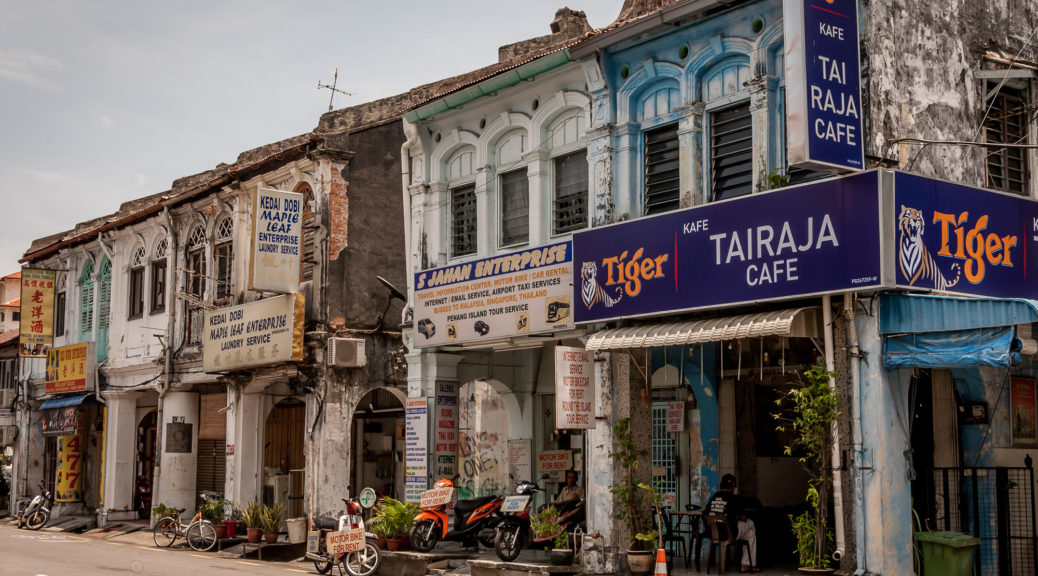
Penang, Malaysia: A Photographer and Foodie’s Dream Destination
Penang, Malaysia – I fell in love almost as soon as we got here but getting here was a bit of an adventure in and of itself. From Bangkok we took an overnight train south through the Thai peninsula to the Malaysia border. Trains don’t cross the border so we had to disembark, go through immigration and board another train to take us to Butterworth where we could catch the ferry to Penang.
We arrived at the Malaysia border station (which can only be described as being in the middle of nowhere) and approached the ticket desk to purchase tickets for our next train. The ticket seller informed us that no, they didn’t take credit cards or US currency nor was there an ATM or money changer anywhere nearby. This really stumped us as we had just arrived in the country and obviously hadn’t had a chance to get local currency. They told us that they would take Thai currency but we had tried to spend all our Thai money since we knew we were leaving the country. We were about $1.50 short in Thai baht and for a moment I didn’t know what we were going to do. Luckily the people behind us in line overheard us and gave us the extra cash we needed. What started as a moment of frustration and panic turned into one of extreme gratitude for the kindness of strangers.
When we finally arrived in George Town, Penang’s capital city, I was immediately struck by the gorgeous historic architecture.
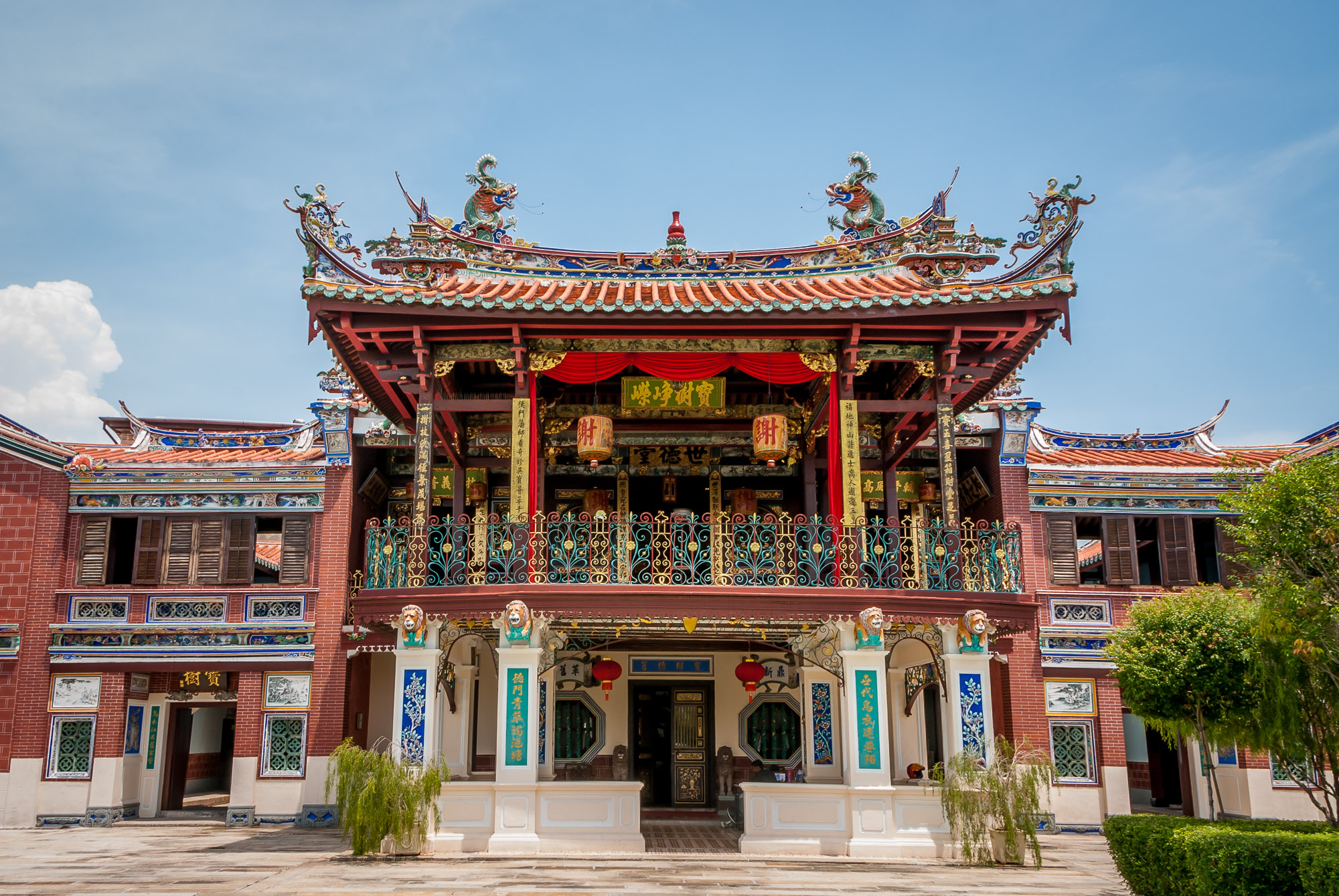
In 2008 UNESCO designated George Town’s historic core as a World Heritage Site. However, unlike other UNESCO towns that we’ve visited like Hoi An and Luang Prabang, most of George Town’s old buildings are still occupied by local business serving mostly locals. It was incredibly refreshing to see beautiful old buildings still in use as hardware stores and mechanic shops rather than souvenir stands and tourist restaurants.
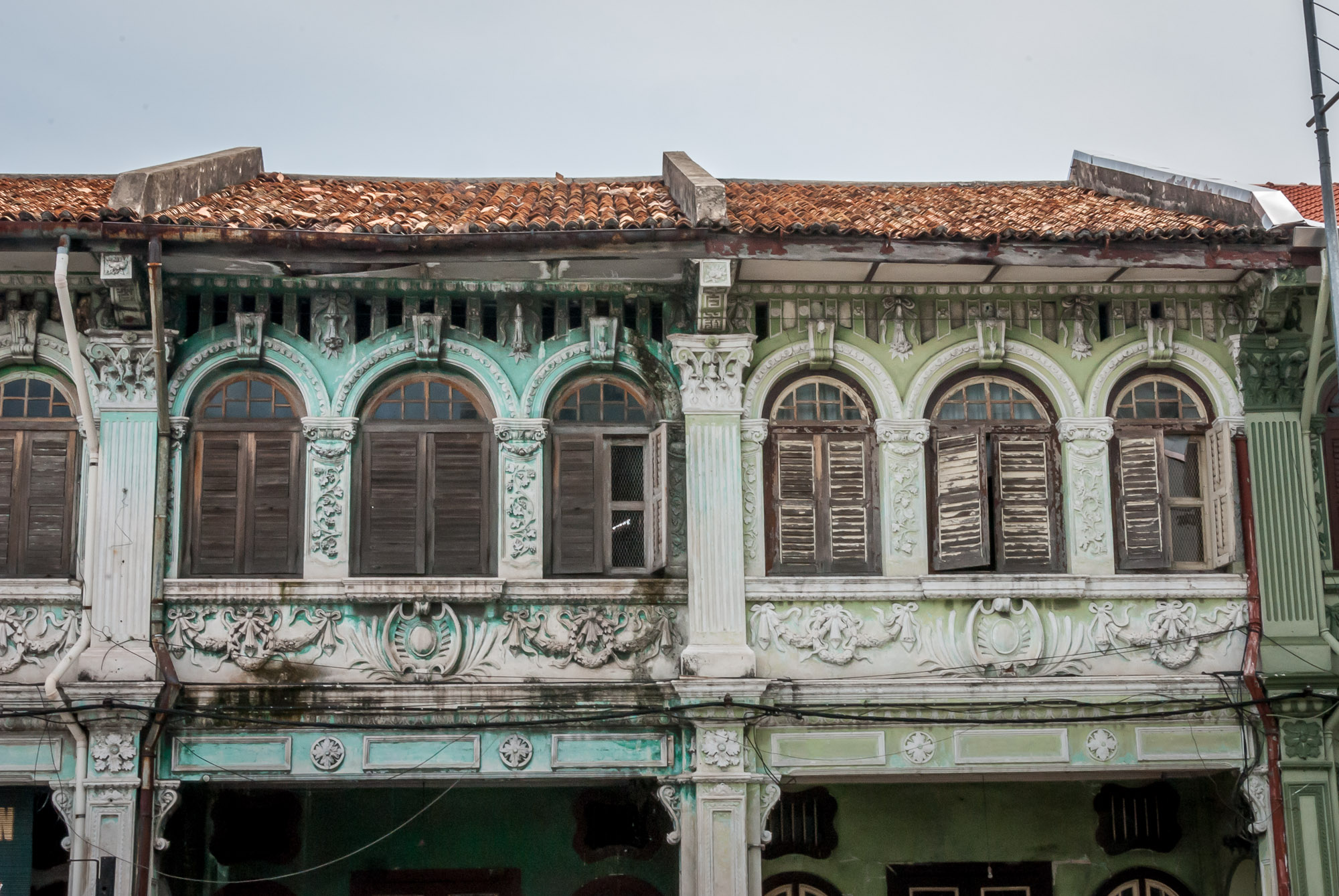
One of Penang’s most famous historic structures is the Blue Mansion. Now operating as a tourist attraction and hotel, this building is an stunning example of the detailed craftsmanship that characterizes much of Penang’s architecture.
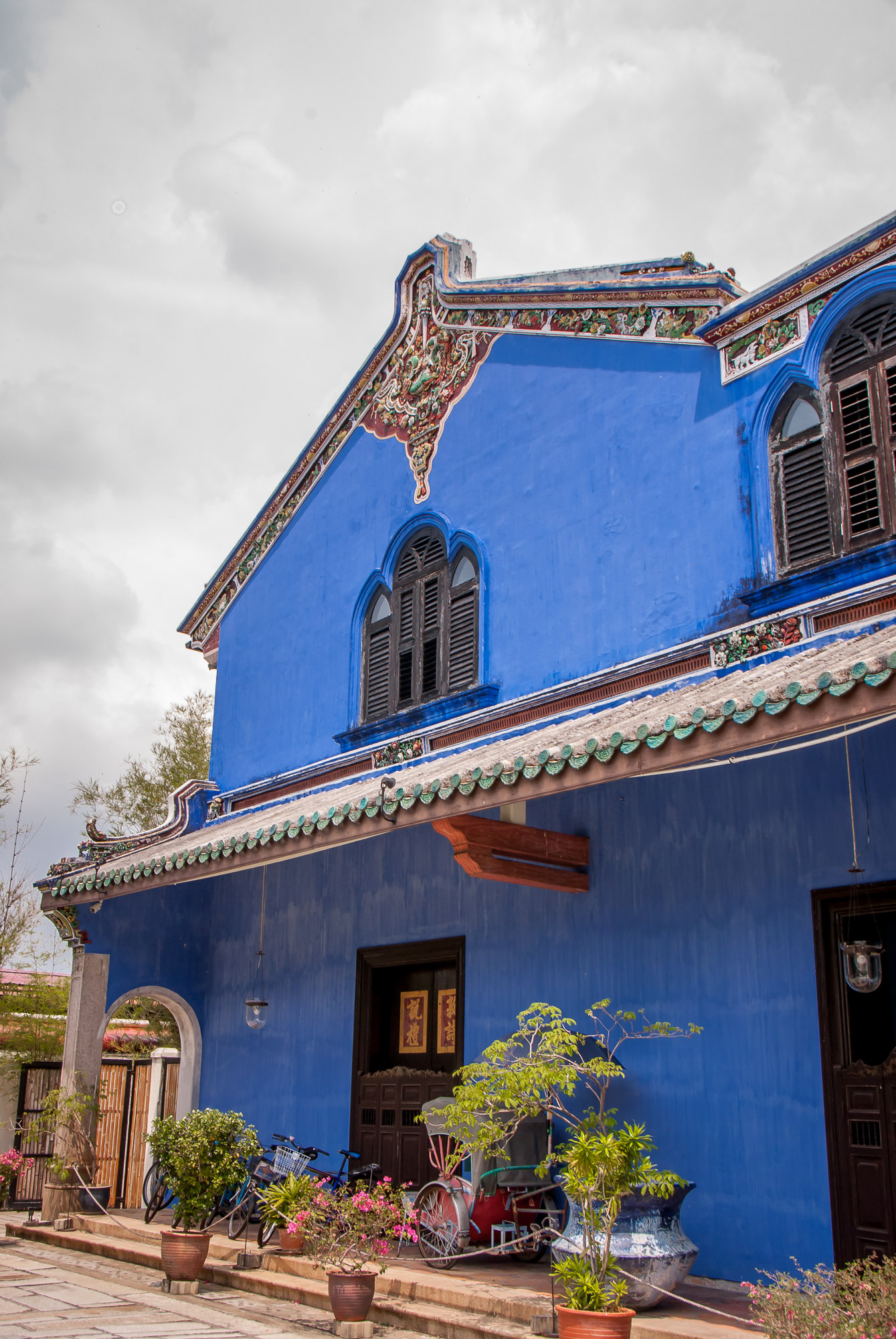
We took a fascinating tour of this gorgeous home and learned about how it fell into disrepair but was ultimately saved by a surge of community support. In 1995 it was painstakingly restored to its former glory.
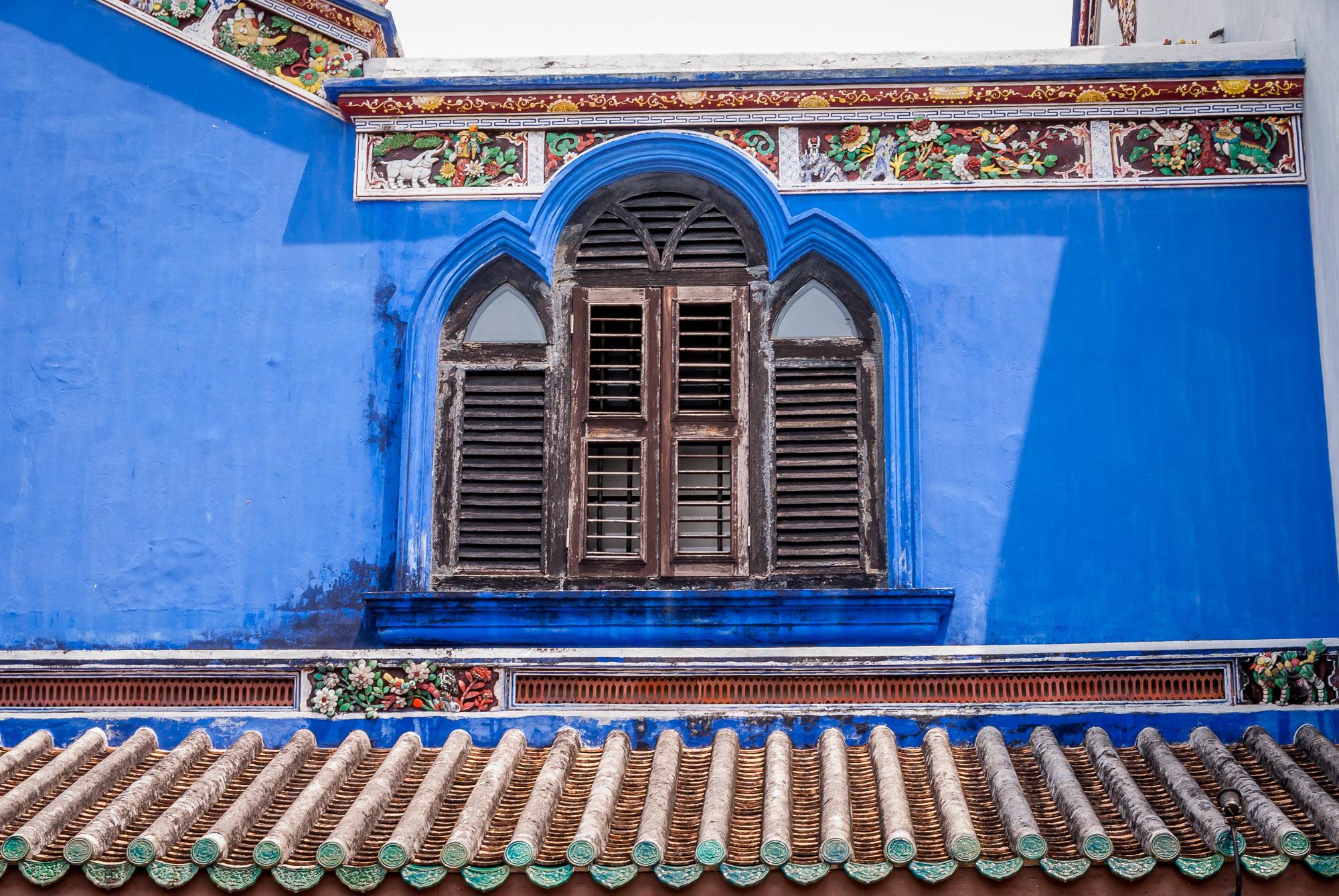
The award winning success of the the Blue Mansion’s restoration is credited with changing the Malaysian government’s attitude toward historic preservation. Up until the late 1990s the focus had been on new, modern development. Many older neighborhoods were demolished to make way for skyscrapers.
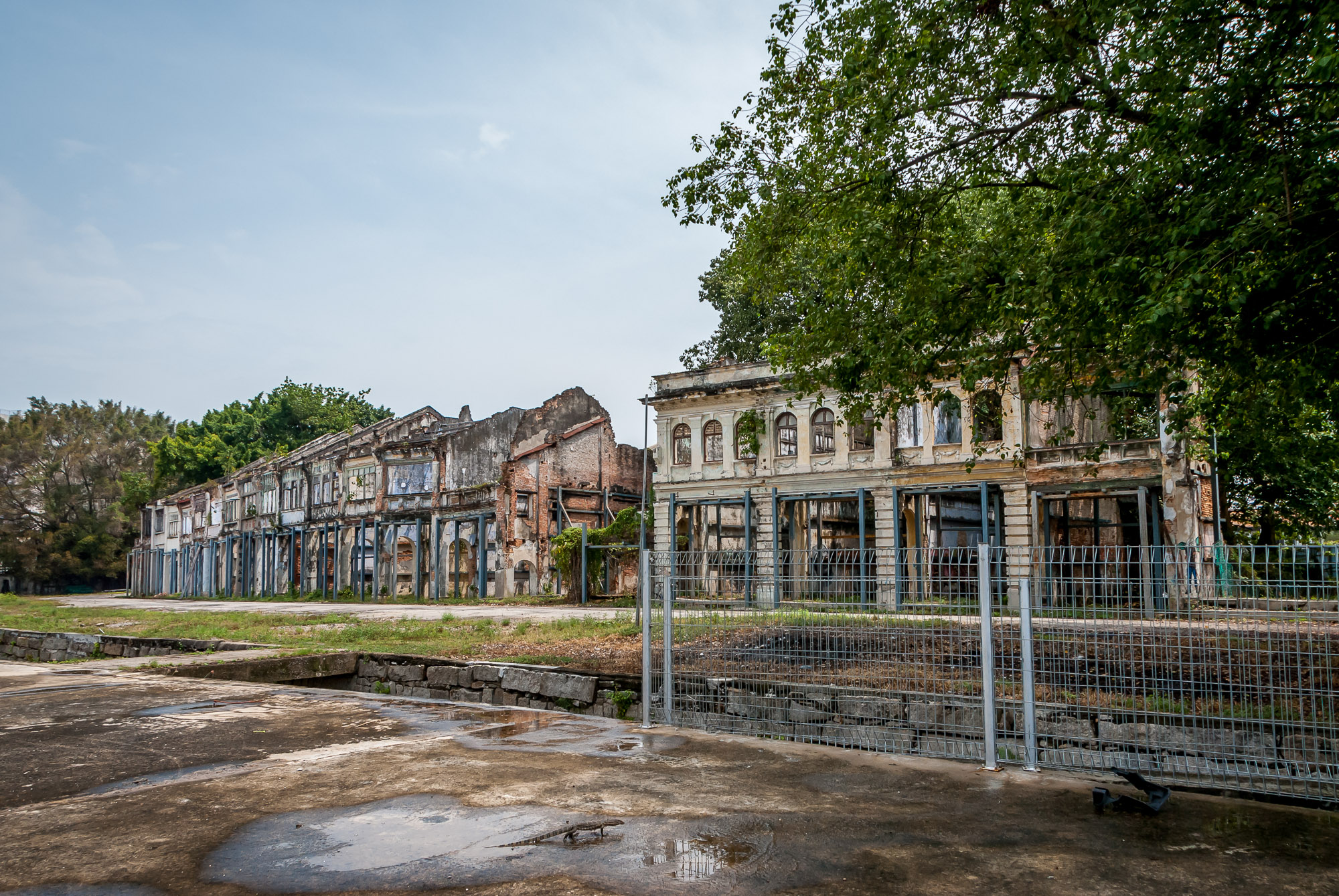
However, after the Blue Mansion garnered international attention they began to see the value of their historic architecture, both as a tourist attraction and as part of their own heritage. Historic preservation is something I am deeply passionate about and I am so thankful that George Town has retained its unique character.
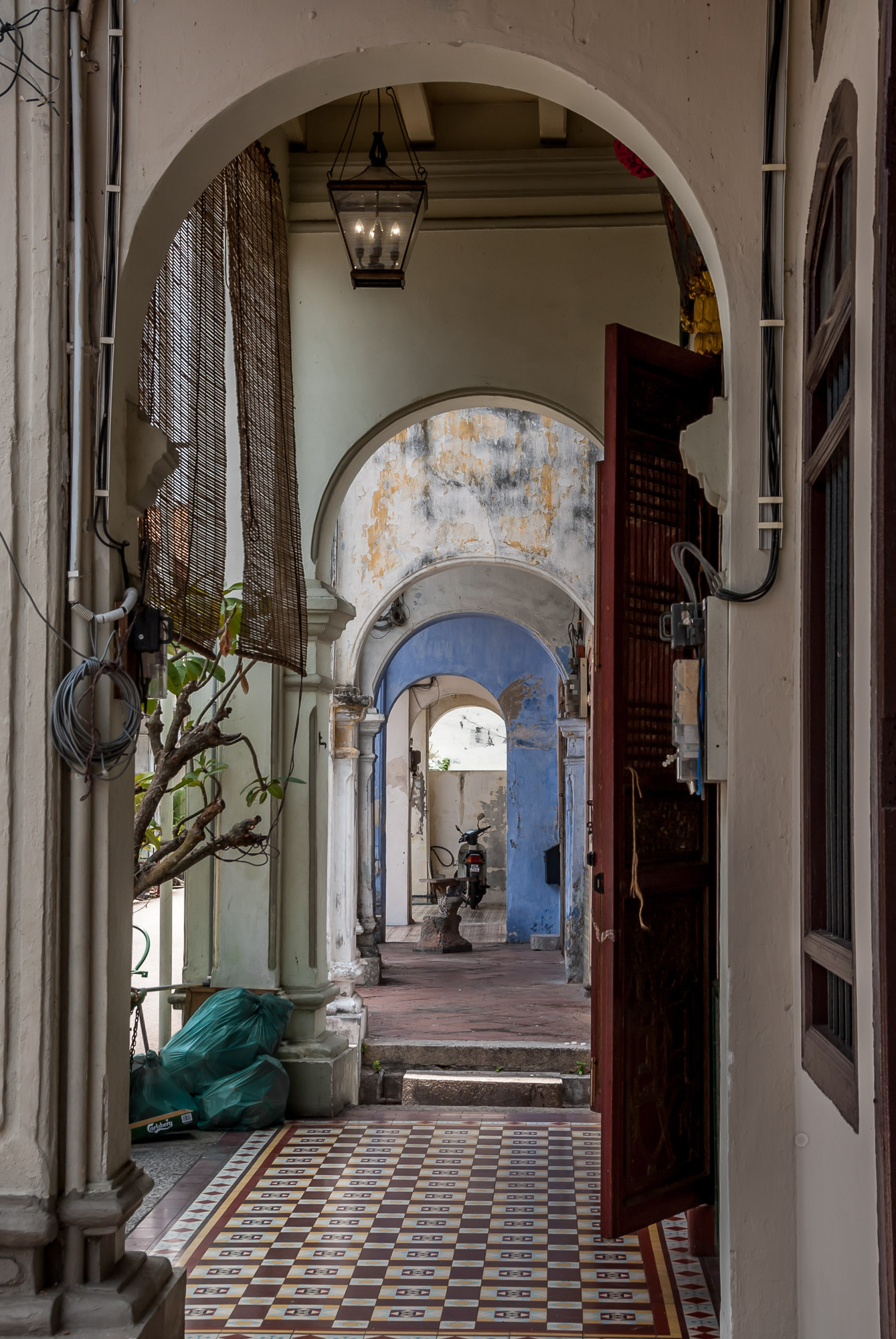
While I was completely smitten with Penang’s architecture, most tourists (including a lot of Malaysians) come to Penang to eat. It is famous for having some of the best street food in the world. One of the things we loved about George Town, and Malaysia in general, is the diversity. The three major ethnic groups, Malay, Chinese and Indian, have lived together on this island for generations. Their rich food cultures have remained distinct in some ways but have also merged to create a cuisine that is totally unique.
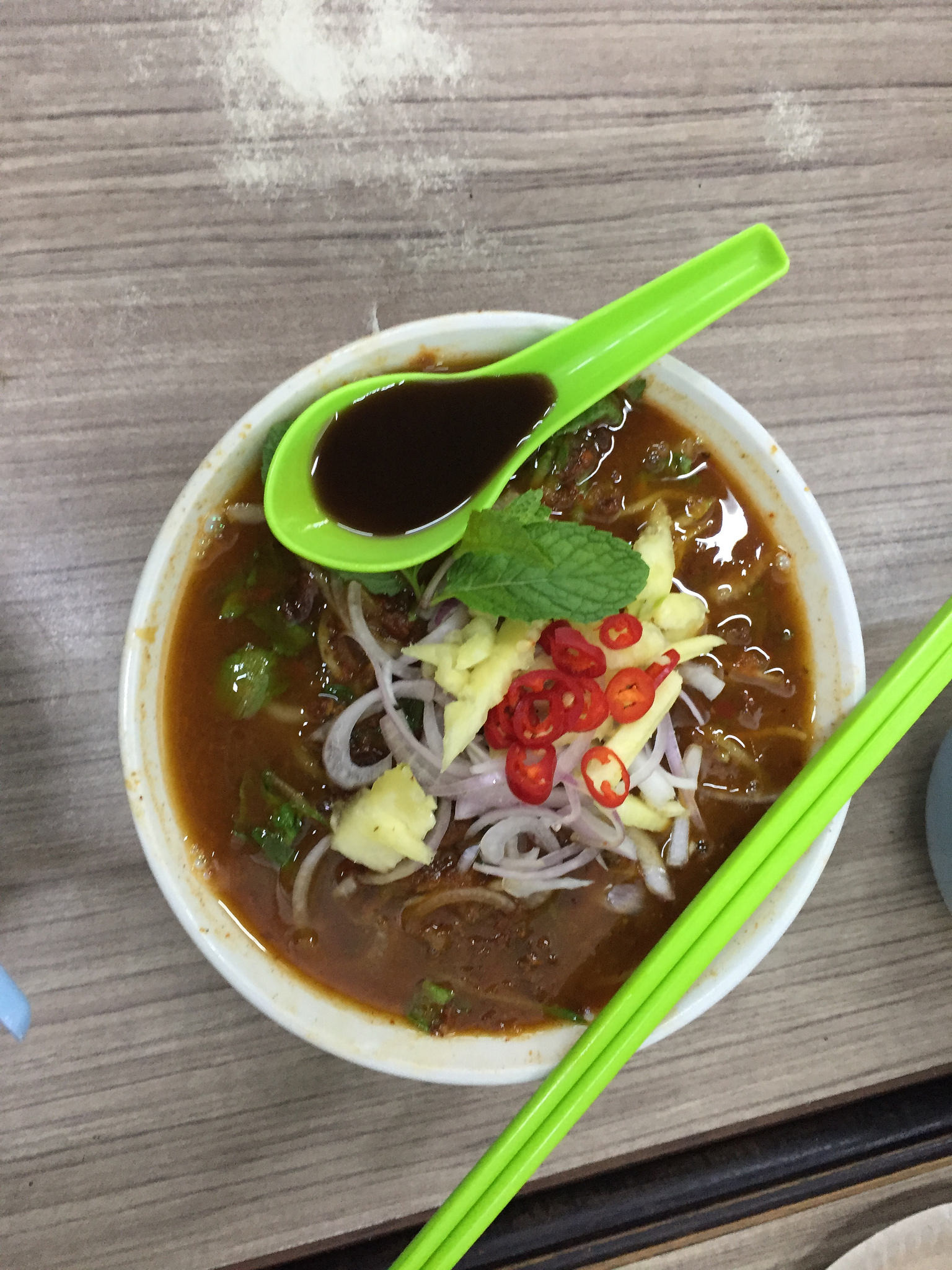
We took an awesome food tour where we got to sample delicious treats such as cendol and loh bak. We also loved exploring the various street food markets that would pop up in different neighborhoods every night. Dan’s favorite new food that we tried was an oyster omelet from a stand conveniently located across the street from our hostel.
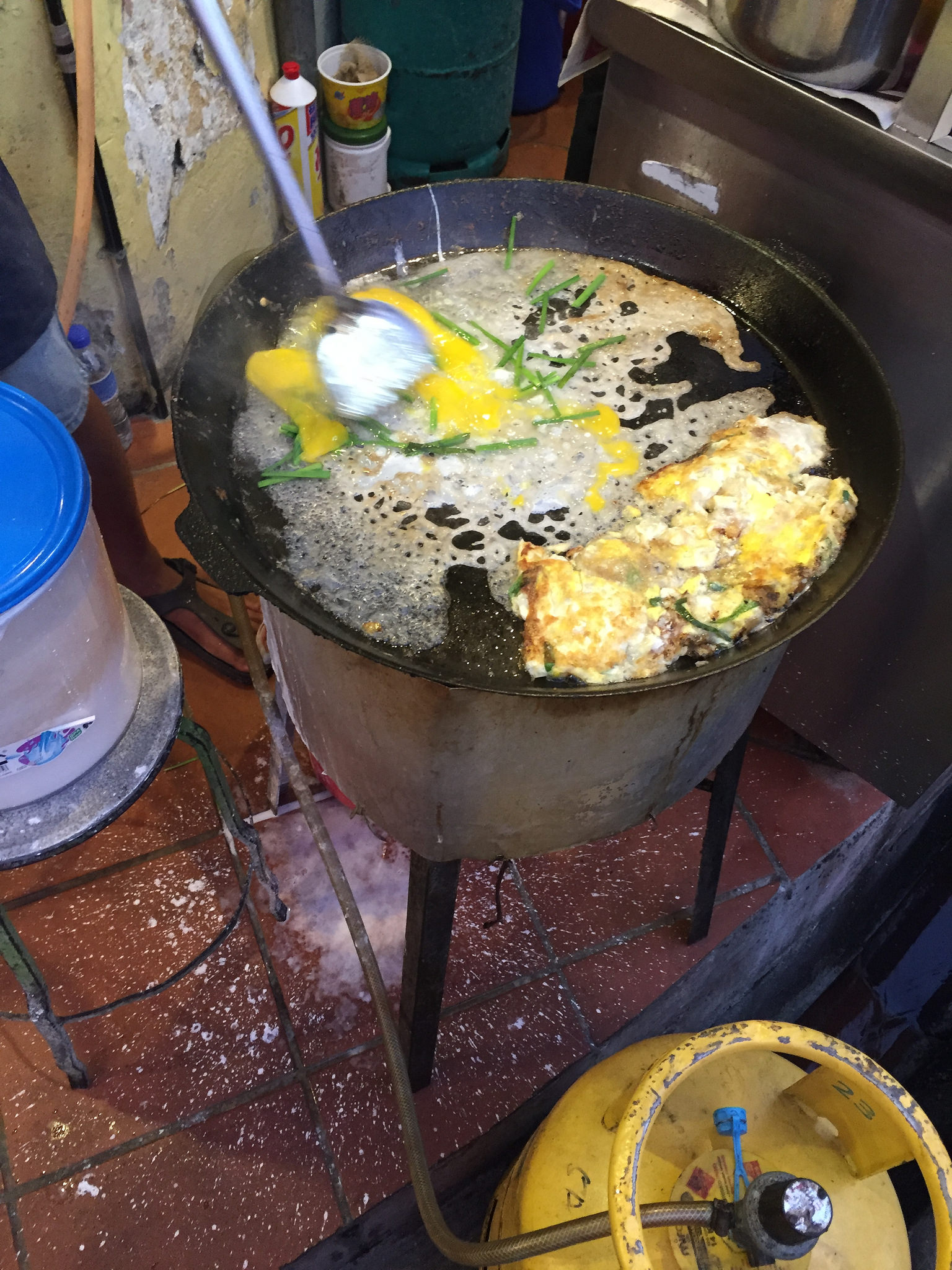
In addition to great food and beautiful buildings, George Town is also famous for its street art. The most well known works are by Lithuanian artist, Ernest Zacharevic, who the government hired to decorate some of Penang’s side streets and alley ways.
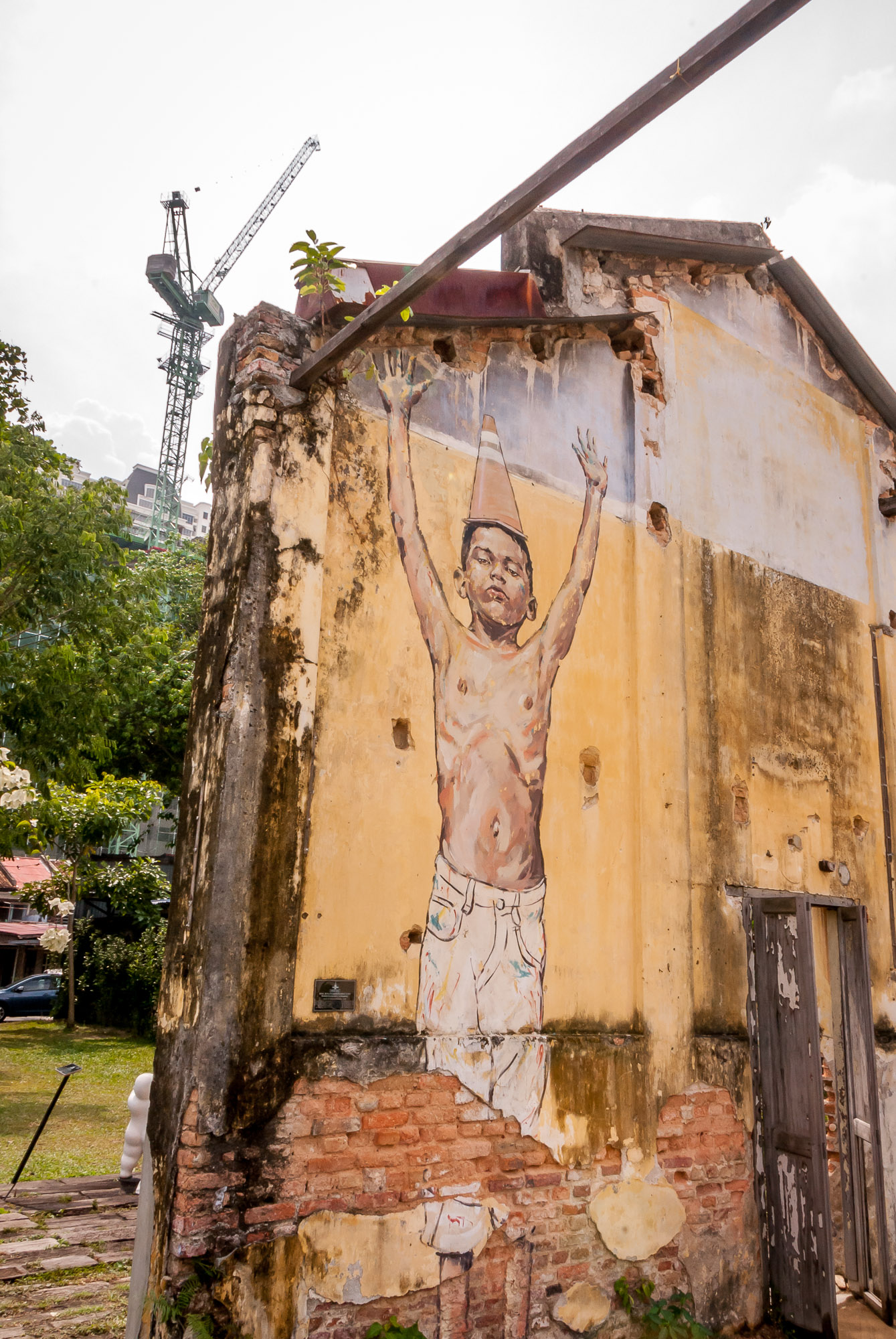
We came to Malaysia knowing very little about it. We hadn’t met anyone else who had been to Penang and we really had no expectations, but it ended up being one of our favorite stops on this entire trip. The people were friendly, the food was different and exciting, and it felt like a place where history was being preserved in a way that made sense for the present needs of the community.